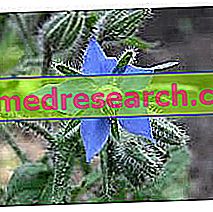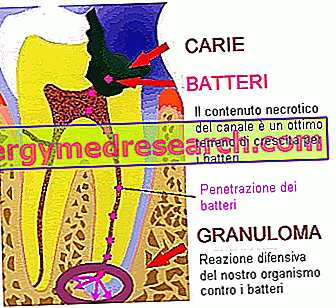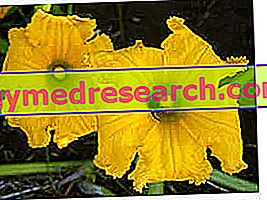
Scientific name
Borago officinalis L.Family
BoraginaceaeOrigin
Annual plant common throughout Italy, especially in uncultivated places.Used Parts
The leaves are used of the plant, but above all the seeds, which are the source of an oil containing unsaturated fatty acids.
Chemical constituents
- Hepatotoxic and carcinogenic pyrrolizidine alkaloids (licosamine, amabilin, supinidine, tesinin and durrina);
- mucilage;
- Potassium nitrates;
- Flavonoids;
- Prostaglandins.
Borage in Herbal Medicine: Properties of Borage
In folk medicine, borage is considered purifying, diuretic and detoxifying. However, due to its toxic alkaloid content, it should not be used for curative purposes, nor as an infusion, juice or mother tincture. Use for food purposes (salads) is also not recommended.
Only the oil extracted from the seeds could be used for borage, rich in polyunsaturated fatty acids and with anti-inflammatory properties.
Biological activity
Borage is a plant whose use has not been approved for any type of therapeutic indication. This is due to the presence of toxic alkaloids contained in it.
However, borage seed oil has been shown to have interesting therapeutic properties, so much so that it is used against neurodermatitis and is included in the composition of various food supplements (these, however, are not officially approved, although widespread).
In fact, various properties are attributed to borage oil, among which the anti-inflammatory properties stand out. Furthermore, the same oil is attributed the ability to exert beneficial effects on the cardiovascular level and to promote an improvement in the typical symptoms of atopic dermatitis and other forms of dermatitis (seborrheic and allergic component).
These properties are attributable to the fatty acids contained in borage oil; in fact, the latter is rich in omega-3 and omega-6 fatty acids. In particular, it appears that the therapeutic activities of the aforementioned oil are mainly attributable to gamma-linoleic acid (or GLA).
The anti-inflammatory activity seems to be exercised through different mechanisms. Some studies have shown that following a diet containing borage oil, the body has an increase in the levels of dihomo-gamma linoleic acid (or DGLA, a product resulting from the elongation of the hydrocarbon chain of gamma-linoleic acid). This increase, in turn, leads to an increase in PGE1, a prostaglandin that is able to inhibit the inflammatory process by increasing cyclic AMP levels; the latter leads to a decrease in chemotaxis and leukocyte adherence.
Other studies on animals have shown that a diet containing borage oil can exert an antihypertensive effect. Also in this case, the responsibility for this activity is attributed to gamma-linoleic acid.
With regard to the use of borage oil in the treatment of different forms of dermatitis, instead, the results obtained are rather contrasting. In fact, while some studies have shown that oral intake, as well as topical application, of borage oil can exert beneficial effects on the symptoms of these skin diseases, other studies have not shown significant improvements deriving from the use of the same oil.
Borage in folk medicine and homeopathy
In folk medicine, borage leaves are used in the treatment of various types of disorders. In fact, this plant is used to treat sore throats, coughs and bronchial affections, as well as to treat kidney and bladder disorders, rheumatism, eczema, diabetic neuropathy, infantile seborrheic dermatitis and hypertension.
Moreover, in folk medicine, borage is attributed diuretic, purifying and detoxifying properties and is also used as a cardiotonic remedy and as a remedy for menopausal disorders, phlebitis, fever and pain.
Borage homeopathic remedy, on the other hand, is used for the treatment of osteoarthritis, rheumatoid arthritis and joint pain, eczema, dermatitis and herpes, and is also used as a remedy to counteract respiratory tract diseases, such as pharyngitis, laryngitis and colds.
Side effects
In case of borage, adverse reactions may occur in the gastrointestinal tract. However, taking the plant is not recommended because of the toxic alkaloids it contains.
Contraindications
Do not take borage-based preparations in case of hypersensitivity to one or more components, during pregnancy and during lactation.
Pharmacological Interactions
Borage oil may interfere with the activity of drugs such as anticoagulants, platelet aggregates, fibronolytics and low molecular weight heparins, causing an increased risk of bleeding.



